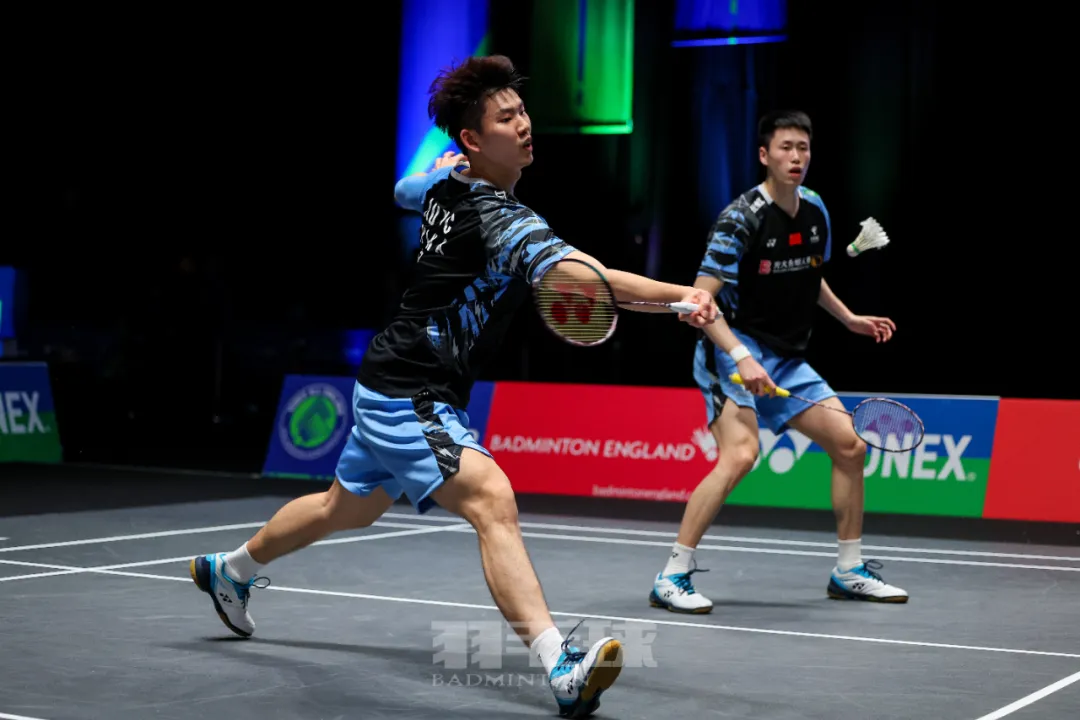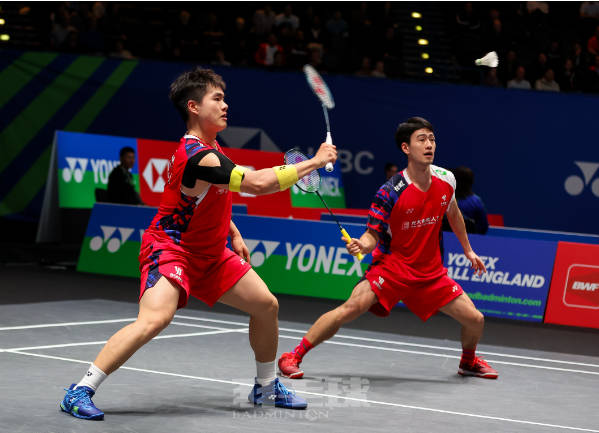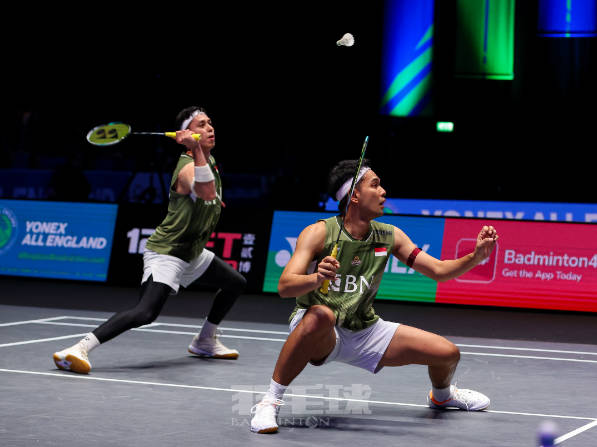As I write this article, the finals of the All England Open are underway, with Indonesia’s Alfian/Ardianto retaining their men’s doubles championship. The Indonesian team has shown a resurgence, joining the current tumultuous men’s doubles battle.
In March, during two significant European events, the Chinese men’s doubles performances were subpar. In the French Open Super 750, all three pairs were eliminated in the round of 16, and only He Jiting/Ren Xiangyu made it to the quarterfinals at the All England Open.
For the lower-tier events in Europe in March, we sent Xie Haonan/Zeng Weihan and Chen Boyang/Liu Yi, who were paired separately with Liu Yang and Huang Di, to participate in three 300-level events. The primary goal was for the younger players to accumulate some points so that after the Paris Olympics, we could have more pairs participating in competitions. In the first event, the Orleans Masters 300, Liu Yi/Huang Di reached the quarterfinals. We hope they perform better in the upcoming matches.

Liu Yuchen/Ou Xuanyi
The top-ranked main pairs, Liang Weikeng/Wang Chang, Liu Yuchen/Ou Xuanyi, and He Jiting/Ou Xuanyi, participated in the French Open 750 (Olympic venue test event) and the All England Open. He Jiting/Ren Xiangyu also competed in the German Open 300, where they finished as runners-up.
Overall, the final results were not ideal. Liang Weikeng/Wang Chang lost to players from Chinese Taipei in both events and had a win-loss record against Li Yang/Wang Chi-Lin. Liu Yuchen/Ou Xuanyi lost to Thai players in one event and to players from Chinese Taipei in another. He Jiting/Ren Xiangyu had a win-loss record against Korea’s Seo Seung-jae/Kang Min-hyuk and lost to Japan’s Kobayashi/Hoki at the All England Open.
The French Open was moved to March this year, held at the venue for the July Paris Olympics. The venue conditions were decent, with noticeable but not severe wind effects, and the shuttle speed was fairly normal. The matches gave us a preliminary understanding and adaptation to the Olympic venue.

Key Observations
Chinese Taipei’s Li Zhehui/Yang Boxuan were impressive. I believe they have indeed improved, maintaining aggressive offense while enhancing the stability of their serve, return, and defense. Their confidence grew after defeating some high-ranking players. In contrast, our pairs, particularly Liang Weikeng/Wang Chang, did not perform poorly but failed to balance “aggression” and “stability.” They struggled to reduce unnecessary errors while maintaining offensive scoring rates. Their serve and return errors were particularly high. Statistics showed an equal number of proactive scores and errors, and the success rate of defensive counterattacks was not high. When this happens, it often depends on the opponent’s performance. We lost to Chinese Taipei players who had threatening offenses and lower error rates. Men’s doubles matches often hinge on one or two points, with victory hidden in the details.
We conducted post-match reviews and proposed solutions. We are confident in changing the current state in upcoming matches.
Liu Yuchen/Ou Xuanyi
The main issue for Liu Yuchen/Ou Xuanyi in these two events was their mindset. They lost matches where they started strong, gained a lead, but then made unforced errors leading to a loss of composure and ultimately the match. They appeared unable to adjust effectively on the court.
Alfian/Ardianto

Their pressure comes from multiple sources. We missed good opportunities to accumulate points early in the year, now urgently needing to score points. The pressure of Olympic ranking points, combined with opponents’ relentless pressure, has brought us to this point. Now, we must compete fiercely at the Asian Championships. However, we remain confident. With the upcoming training and adjustments, I firmly believe Liu Yuchen/Ou Xuanyi can reach the Paris Olympic stage!
He Jiting/Ren Xiangyu’s matches against Seo Seung-jae/Kang Min-hyuk provided invaluable experience. From losing to winning, we learned from our opponents, applied targeted strategies, and executed them well in the rematch, demonstrating strong adaptability and transformation. Even after losing to Kobayashi/Hoki, we identified areas for improvement. These experiences have laid a solid foundation for preparing for next month’s Thomas Cup.
I have great expectations for our three men’s doubles pairs. I hope that with this period of adjustment and training, we can perform excellently at the Thomas Cup!

Leave a Reply